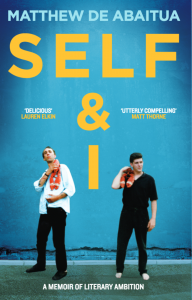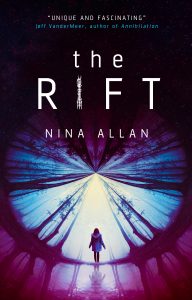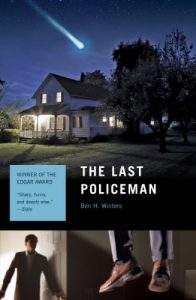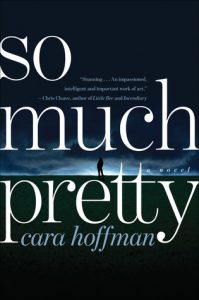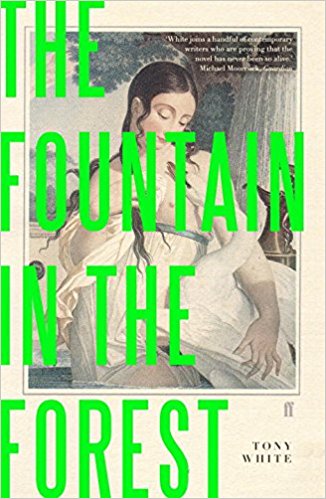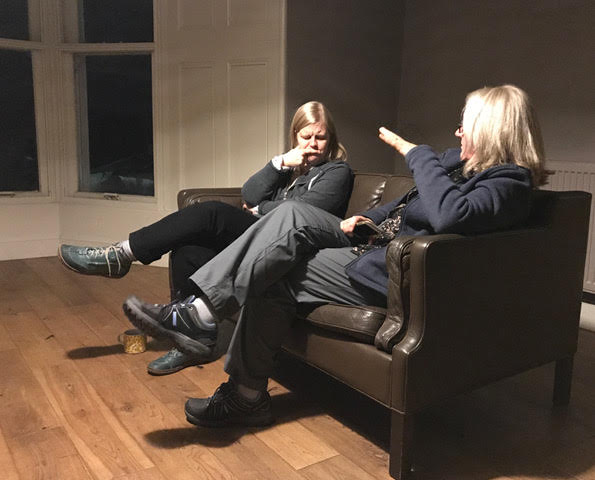This year has been a strange one, reading-wise. For me, the first seven months of 2017 were entirely dominated by the Shadow Clarke – thinking about it, reading for it, and of course writing for it, too. In terms of the experience it provided it exceeded every expectation, mainly on account of my fellow Sharkes, whose skills as thinkers, writers and critics cannot be overstated. As a group, I think I can say we enjoyed ourselves throughout, even when we didn’t – it was that kind of project. But while the experience of chairing the Shadow Clarke counts and will remain in the memory as one of the outstanding highlights of 2017, the reading landscape we were travelling through did – towards the end especially – begin to take on some of the characteristics of a blasted heath. Even in this respect, there were pluses: having to read and write detailed criticism of books one might not ordinarily have chosen to spend time with was a fascinating and worthwhile experience in and of itself. But by the end of July my reading brain felt battered and skewed by a ‘science fiction of 2016’ remit I needed to move on from. I was more than ready to take in new perspectives.
Having said all that, 2017 did deliver some outstanding reading experiences. My novel of the year is an easy choice to make. Nicola Barker’s H(A)PPY is a short book, but it made a huge impact on me. I have seen some hardcore SF readers perplexed by it, feeling that as a portrait of dystopia it fails to offer anything substantially new. I think such a reading misses the point. Barker’s novel is not interested in the outward mechanics of dystopia. Rather it seeks, through a layering of narrative strands, conflicting ideas about ‘happiness’ and formal textual experimentation, to offer an inside perspective. How might it feel to be a citizen fundamentally out of step with the grounding principles of one’s own society? How might it feel to doubt one’s identity within a climate of absolute certainty? H(A)PPY was, for me, a fully immersive experience – textual, typographical, musical – of a wholly original stripe. It is a wonderful book. To see Barker win the Goldsmiths Prize for it was a happy moment indeed.
Close behind H(A)PPY comes Katie Kitamura’s A Separation. This hard little gem of a novel starts out reading like a missing persons thriller but delivers so much more. The formal execution of the prose is nothing short of masterful, while the strange, open-ended story it relates is one that sticks in the memory for a long time and demands a reread (always my test for truly worthwhile fiction). Again, I loved this book. I loved the subtlety of its characterisation, its directness, its formal brilliance. It should have received a lot more attention than it did.
While I was in Paris I finally caught up with Daniel Kehlmann’s 2014 novel F, and what an extraordinary book it turned out to be. Like all the most interesting fiction it is hard to sum up in just a few words what F is ‘about’. We have three brothers, an absent father, an interweaving of timelines and familial relationships that come together to make a story that is surprising, strange, moving, occasionally uncanny, and always, always brilliant. F turns out to stand for all manner of things: fame, fake, fear, forgery, faith, fraud, fat. If F reminded me of any book at all it was Bernhard’s The Loser, still an unassailable highlight of last year’s reading. I would also highly commend Kehlmann’s work from this year, the novella You Should Have Left. A screenwriter takes his wife and daughter to a mountain retreat so he can concentrate on his work in progress, a script that is proving more than a little intractable. The house they’re staying in has other ideas, though – rather like the Navidson place in House of Leaves. This is a creepy little work, genuinely unnerving, and I only wish Kehlmann had seen fit to expand it to novel length. I would have enjoyed learning more about these characters and their situation. And, of course, about that house…
A similarly unorthodox approach to the haunted house story, J. Robert Lennon’s Broken River was another fabulous book that deserved more attention. Lennon’s fiction is everything you want fiction to be: unarguably of our time but never trendy, satisfyingly, determinedly odd, tight as a drum in terms of its construction and use of language. Broken River contains moments of chill-inducing tension that will keep the most stalwart crime fiction fan happy, whilst providing the kind of narrative ambiguity and strength of characterisation that would make it equally compelling as story on a second or even a third reading.
I would also like to mention two not-so-recent novels, firstly Georgia Blain’s 1998 debut Closed for Winter. I first heard of Georgia Blain when I happened to read a moving memorial of her in The Guardian around this time last year. She sounded like such an interesting writer, her death at the age of 52 a genuine loss to Australian letters. What with the Shadow Clarke to keep me busy, it wasn’t until August that I finally found time to read her first novel, the story of a child that goes missing and the repercussions of the tragedy down the years. A true delight, I found Closed for Winter to be as close to perfect as this kind of short, interior ‘slice of life’ novel could hope to be. A wonderful achievement, and all the more so given that this was Blain’s debut. A wonderful writer, who deserves to be remembered.
Earlier this month and following a run of less-than-satisfying reads that shall remain nameless, I turned at last to Margaret Elphinstone’s 2003 novel Voyageurs, the story of Mark, a Northumberland farmer and Quaker who sets out to find his sister Rachel, missing thousands of miles away in the Canadian wilderness. The experience of reading Voyageurs immediately put me in mind of the experience I had about five years ago reading Margaret Drabble’s The Peppered Moth. Coming in the wake of a similar ‘reading drought’, The Peppered Moth was like a miracle, a novel that in terms of its craft, its depth of field, its richness of perception far outshone anything I’d read all year. Voyageurs is like that: almost literally a transporting experience, the kind of novel that deserves to become a classic.
Away from the world of the novel, 2017 saw the publication of some notable collections of short fiction. First among them is of course M. John Harrison’s You Should Come With Me Now. Harrison’s first collection since 2000’s Travel Arrangements, YSCWMN presents a sequence of longer stories and flash fictions, woven together to form something significantly more substantial than the word ‘collection’ might suggest, yet simultaneously more wayward and less easily definable than a novel. While stories like ‘The Crisis’, ‘In Autotelia’ and the unforgettable ‘Entertaining Angels Unawares’ are standout events in themselves, this book is best appreciated as a continuum. YSCWMN is an extraordinary work, the most recent instalment of an oeuvre that is that rare thing: of lasting importance.
The stories in Camilla Grudova’s debut work The Doll’s Alphabet read like dispatches from a madhouse, or a magical realm. Some are fragmentary, some are longer pieces, all announce the arrival of a major new talent. Reading The Doll’s Alphabet put me in mind of how I felt when I first read Bruno Schulz’s Street of Crocodiles, in which lyrical beauty rubs shoulders with shivery horror in what feels like a series of flashbacks from an unsettling dream. The stories are flawlessly crafted, and – as suggested above – have the feel of lost European fairy tales. I would love to see a novel from Grudova, especially as I can barely imagine what such a work would be like!
Another notable debut collection of 2017 was that of Malcolm Devlin, You Will Grow into Them. Devlin has been publishing short stories in Black Static and Interzone for several years now, and this collection marks a new high point in what he has achieved so far. In its preoccupation with character psychology and the uncanny, there’s a hint of Robert Aickman in Devlin’s fiction, but its political and social astuteness make it something else again and wholly Devlin’s own thing. As with Grudova, I’m looking forward to seeing more from Devlin. I’ve heard he’s currently at work on a novel, which is good news for all of us.
In film, I have loved and admired Kelly Reichardt’s Certain Women, Kleber Mendonca Filho’s Aquarius, Kathryn Bigelow’s Detroit, Darren Aronofsky’s Mother! Edgar Wright’s Baby Driver, Armando Iannucci’s The Death of Stalin, William Oldroyd’s Lady Macbeth, Sally Potter’s The Party, Paul Verhoeven’s Elle, Trey Edward Shults’s It Comes at Night, Andrei Zvyagintsev’s Loveless, and Paul King’s Paddington 2, which we saw last night and felt like the perfect new year celebration. Joint film honours though have to go to Park Chan-wook’s The Handmaiden, which must surely count as a masterpiece and possibly Park’s greatest film yet, and Jordan Peele’s Get Out, a horror film of startling originality and importance. The moment where the title words are spoken (or rather screamed) literally made my blood run cold. If you haven’t seen it yet, make sure you do.
If I have any reading goals for 2018, it is not to have ‘reading goals’. I want to read more books like Margaret Elphinstone’s, I want to feel less preoccupied with what’s coming out next month and more involved with the books that might be relevant to me personally. I want to be inspired and challenged, not frustrated and annoyed. I’m looking forward to bringing you news of my next novel, and beginning work on something entirely new.
Thanks to the very many friends, colleagues, readers and thinkers who have shared their time, insights, talent and fellowship throughout 2017. You are needed, and important, now more than ever.
A Happy New Year to everyone reading this, and here’s to turning the tide in 2018. .
